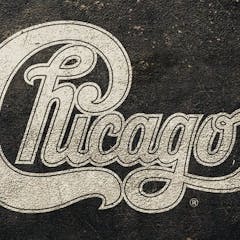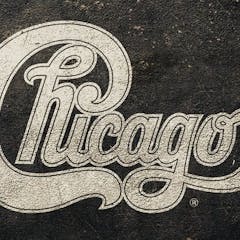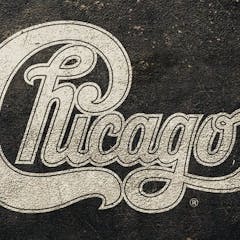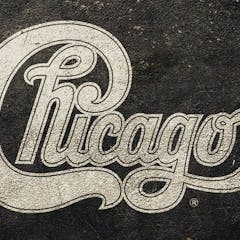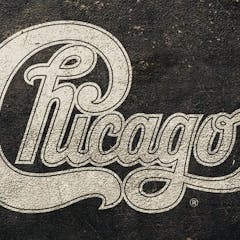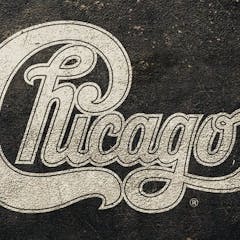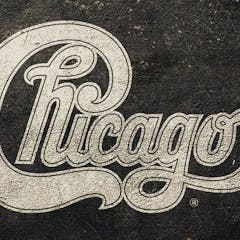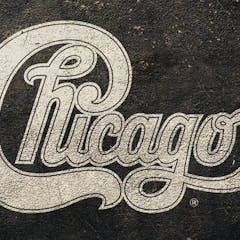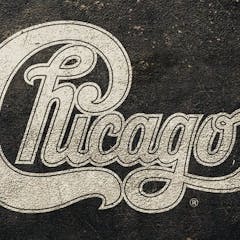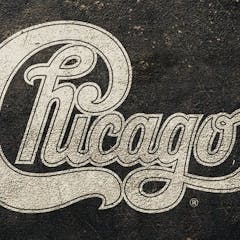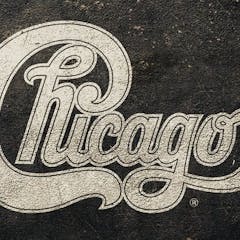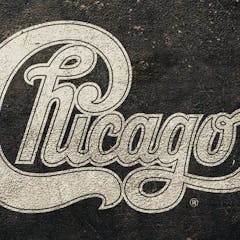
Chicago
Pop
∙
Rock
2 +People favorited
2 +People favorited
Upcoming Events
Saturday, February 28
Wednesday, July 1
Monday, July 13
Wednesday, July 15
Friday, July 17
Saturday, July 18
Monday, July 20
Tuesday, July 21
Thursday, July 23
Saturday, July 25
Sunday, July 26
Tuesday, July 28
Details
Description
Chicago is an American rock band formed in Chicago, Illinois, in 1967. The group was initially billed as The Big Thing before calling themselves the Chicago Transit Authority in 1968, and then shortening the name in 1969. The self-described "rock and roll band with horns" blended elements of classical music, jazz, R&B, and pop music. They produced numerous top-40 hits over two decades, and continue to record and perform live.
Growing out of several Chicago-area bands in the late 1960s, the line-up consisted of Peter Cetera on bass, Terry Kath on guitar, Robert Lamm on keyboards, Lee Loughnane on trumpet, James Pankow on trombone, Walter Parazaider on woodwinds, and Danny Seraphine on drums. Cetera, Kath, and Lamm shared lead vocal duties. Laudir de Oliveira joined the band as a percussionist and second drummer in 1974. Kath died in 1978, and was replaced by several guitarists in succession. Bill Champlin joined in 1981, providing vocals, keyboards, and rhythm guitar. Cetera left the band in 1985 and was replaced by Jason Scheff. Seraphine left in 1990, and was replaced by Tris Imboden. The band's lineup has been more fluid since 2000, but keyboardist Robert Lamm and the entire horn section of Loughnane, Pankow, and Parazaider have remained constant members.
The band's first album, Chicago Transit Authority (1969), a sprawling double album filled with experimental rock songs, failed to produce a hit single. Their second album, another double album simply titled Chicago (1970) (later retroactively titled Chicago II) continued with the format of experimental rock, however the album produced two top-10 singles, "Make Me Smile", which peaked at 9 on the Billboard Hot 100, and "25 or 6 to 4", which peaked at 4. Re-releases of several singles from the first album also charted in the top 10 in 1970, and 1971. The band would continue to produce hit albums based on the formula established with their first two records until 1978, when Kath died of an accidental self-inflicted gunshot wound. The band changed sounds as the 1980s began, where Peter Cetera and producer David Foster took the band in a less progressive direction, producing a number of soft rock and easy listening hits, including "Hard to Say I'm Sorry" (1982) from Chicago 16 and "You're the Inspiration" (1984) from Chicago 17, the band's biggest selling album in their career. Cetera left to pursue a solo career in 1985, but the band continued to produce hit singles under Foster's direction, including "Will You Still Love Me?" (1986), featuring lead vocals from new bassist Jason Scheff, and the band's best selling single of all time, "Look Away" (1988), with vocals by Bill Champlin. While the band failed to produce any hit songs from the 1990s onward, they continued to release albums and tour, including several highly successful co-headlining tours with fellow horn-based band Earth, Wind, and Fire. Their most recent album is Chicago XXXVII: Chicago Christmas from 2019.
Chicago is one of the longest-running and most successful rock groups, and one of the world's best-selling groups of all time, having sold more than 100 million records. In 1971, Chicago was the first rock act to sell out Carnegie Hall for a week.
To date, Chicago has sold over 40 million units in the U.S., with 23 gold, 18 platinum, and eight multi-platinum albums. They have had five consecutive number-one albums on the Billboard 200 and 20 top-ten singles on the Billboard Hot 100. In 1974 the group had seven albums, its entire catalog at the time, on the Billboard 200 simultaneously. The group has received ten Grammy Award nominations, winning one for the song, "If You Leave Me Now". The group's first album, Chicago Transit Authority, released in 1969, was inducted into the Grammy Hall of Fame in 2014. The original line-up of Chicago was inducted into the Rock and Roll Hall of Fame in 2016. In 2017, Peter Cetera, Robert Lamm, and James Pankow were elected to the Songwriters Hall of Fame for their songwriting efforts as members of the music group. Chicago received a Grammy Lifetime Achievement Award on October 16, 2020.
Top Chicago Songs of All Time

